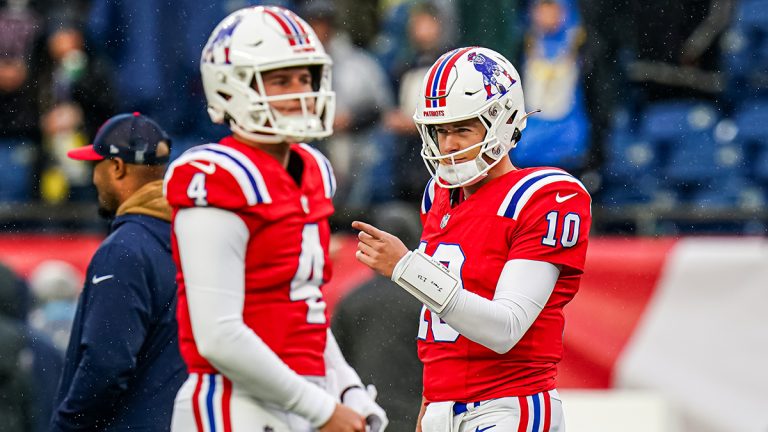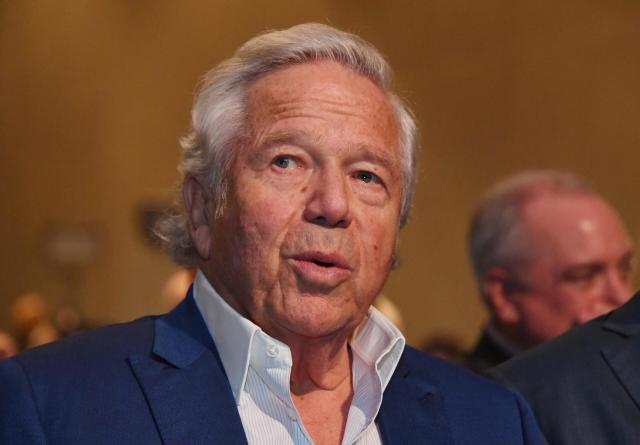49ers Unaware of Overtime Rules Post-Super Bowl Defeat: Admission Surfaces
The aftermath of the San Francisco 49ers’ Super Bowl loss left the team grappling with disappointment and facing scrutiny, particularly as some players confessed to being unaware of the playoff overtime rules that ultimately decided the outcome of the game. Sunday’s Super Bowl showdown, held in Las Vegas, marked only the second instance in history where the championship match extended into overtime. Furthermore, it was the first to occur under a rule modification implemented in March 2022, which altered the dynamics of overtime play by eliminating the possibility of an immediate victory for the team scoring a touchdown on the opening possession of the extra period.
Reflecting on the outcome, defensive lineman Arik Armstead revealed his surprise at the new playoff overtime rule, admitting his lack of awareness during the critical moments of the game. “I didn’t even know about the new playoff overtime rule, so it was a surprise to me,” Armstead remarked, underscoring the confusion experienced by some players regarding the updated regulations.
The pivotal overtime period saw the 49ers winning the coin toss and opting to receive the ball, initiating a drive down the field that culminated in a field goal, granting them a narrow 22-19 lead over the Kansas City Chiefs. However, the Chiefs swiftly retaliated with an impressive 75-yard drive, ultimately securing victory with a three-yard touchdown pass from Patrick Mahomes to Mecole Hardman, sealing the final score at 25-22 in favor of the Chiefs.
In hindsight, fullback Kyle Juszczyk expressed his own ignorance of the playoff overtime rules, confessing his assumption that the primary objective was to secure possession of the ball and score a touchdown for an immediate win. “You know what? I didn’t even realize the playoff rules were different in overtime. I assume you just want the ball to score a touchdown and win,” Juszczyk admitted, highlighting the lack of clarity and strategic preparation within the team regarding the nuances of playoff overtime play.
The absence of comprehensive understanding and preparation regarding the playoff overtime rules underscored a crucial oversight within the 49ers’ game strategy, ultimately contributing to their defeat in the Super Bowl. As the team reflects on their performance and contemplates future matchups, there is a pressing need for enhanced awareness and thorough preparation to navigate the complexities of playoff overtime scenarios effectively.
Despite the disappointment and scrutiny following their Super Bowl loss, the San Francisco 49ers now face an opportunity for growth and refinement as they analyze the lessons learned from their experience and strive for success in future endeavors.
Latest American Football League Scores & Updates.
The NFL’s overtime rules sparked controversy in January 2022 following the Buffalo Bills’ playoff defeat to the Chiefs, where the Bills’ potent offense never had an opportunity to possess the ball in the extra period. Under the previous rules, if a team scored a field goal on the opening possession of overtime, their opponent would receive a possession, with the chance to win the game with a touchdown or tie it with a field goal. If both teams scored field goals on their initial possessions, the next team to score would secure the victory.
In response to the criticism and scrutiny surrounding overtime rules, San Francisco head coach Kyle Shanahan disclosed that he and his analytics team had extensively deliberated over potential overtime scenarios ahead of the Super Bowl. Meanwhile, members of the Chiefs, including head coach Andy Reid, revealed that their analytics indicated it was advantageous to kick off first in overtime. This strategic decision aimed to afford the Chiefs the opportunity to secure a win outright on the subsequent possession if both teams scored and matched each other’s efforts.
Reflecting on Shanahan’s decision to receive the ball first in overtime, Reid acknowledged Shanahan’s astuteness as a coach and emphasized the subjective nature of strategic preferences in overtime situations. While the Chiefs opted to kick off first based on their analytical assessment, Reid acknowledged that differing philosophies exist regarding the optimal approach to overtime scenarios. Despite differing viewpoints, Reid commended Shanahan as a highly capable football coach, underscoring the respect and admiration shared among coaching peers within the NFL.
The discourse surrounding NFL overtime rules underscores the complexities and strategic considerations inherent in postseason matchups, where decisive moments can significantly impact the outcome of high-stakes games. As teams navigate the nuances of overtime play and weigh various strategic options, there is a recognition of the need for informed decision-making and adaptability to optimize chances of success in critical postseason situations.
While the debate over optimal overtime strategies continues to evolve within NFL circles, the overarching goal remains consistent: to devise strategies that maximize the likelihood of victory while accounting for the unique dynamics of postseason play. As coaches and teams analyze past performances and refine their approaches, the quest for strategic excellence and competitive advantage remains an ongoing pursuit in the ever-evolving landscape of professional football.








